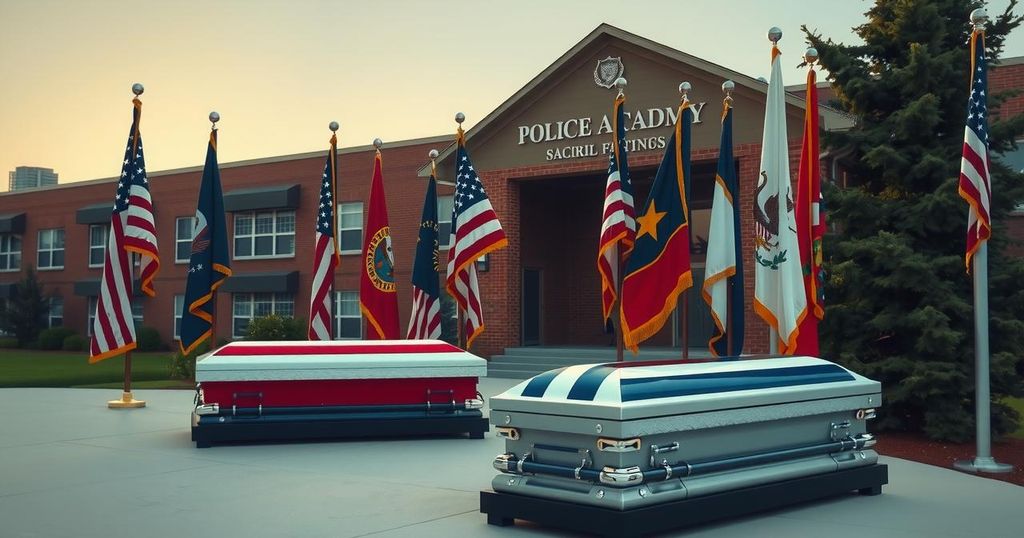Bolivian police held a memorial for officers killed in clashes with supporters of former President Evo Morales during recent protests over economic issues. Authorities vowed justice for the fallen while protests intensified, revealing deep political tensions in Bolivia. Morales seeks another presidential candidacy despite legal hurdles, as the stability of Bolivia’s democracy hangs in the balance.
In a somber ceremony on Saturday, Bolivian police honored the fallen officers who lost their lives during violent protests linked to former President Evo Morales’ supporters. Officers promised to ensure justice by identifying and apprehending those responsible for the deaths. “We will spare no effort to identify, arrest, and present to the authorities those cowards who took the lives of our comrades,” stated National Police Commander Augusto Russo during the event at the National Police Academy in La Paz.
The tribute recognized Second Lieutenant Christian Calle, 22, and firefighter Sergeant Jesús Mamani, both of whom were posthumously promoted for their sacrifices. The ceremony was steeped in emotion, beginning with a mass next to their caskets, and later, leaders from the police awarded medals, service caps, and the national flag to the grieving families. As the events wrapped up, younger officers formed a corridor, waving white handkerchiefs in farewell as the funeral procession departed.
The violence escalated significantly over the past week, claiming the lives of four officers during confrontations between security forces and protesters. On Wednesday, three officers were killed while trying to reach Llallagua, where demonstrations had become particularly aggressive. A fourth officer was reported deceased in Cochabamba after allegedly being detained and subjected to an explosive device.
Protests have continued to disrupt crucial transport routes, as demonstrators voice their grievances about economic hardships like fuel shortages and soaring inflation. However, President Luis Arce’s administration argues that the protests are primarily aimed at forcing his resignation and enabling Morales to pursue an unlawful presidential candidacy.
Authorities have managed to clear some highways following organized intervention from police and military forces. Yet, significant blockades remain in Cochabamba, a region heavily influenced by Morales and his union supporters, causing ongoing transport delays.
Despite facing legal challenges, Morales is unyielding in his ambitions for another presidential term. The Constitutional Court ruled that re-election is limited to one consecutive term, thereby blocking him from a fourth run. Even though Morales resigned from his long-standing position in the Movement for Socialism party in late 2023, tensions linger with Arce’s government over party control and future policy directions as the 2025 elections approach.
These protests, highlighting deepening divisions within the ruling party, add complexity to Bolivia’s ongoing political crisis, raising fears for the country’s already delicate democratic situation.
The death of four officers during recent protests has amplified grief and anger within the Bolivian police force, sparking calls for justice. Tensions surrounding the protests, which are driven by economic discontent yet perceived as politically motivated, continue to challenge President Arce’s government. Morales, despite setbacks, remains a contentious figure in Bolivian politics, as protests indicate a possible resurgence of his influence within a fractured political landscape.
Original Source: efe.com






